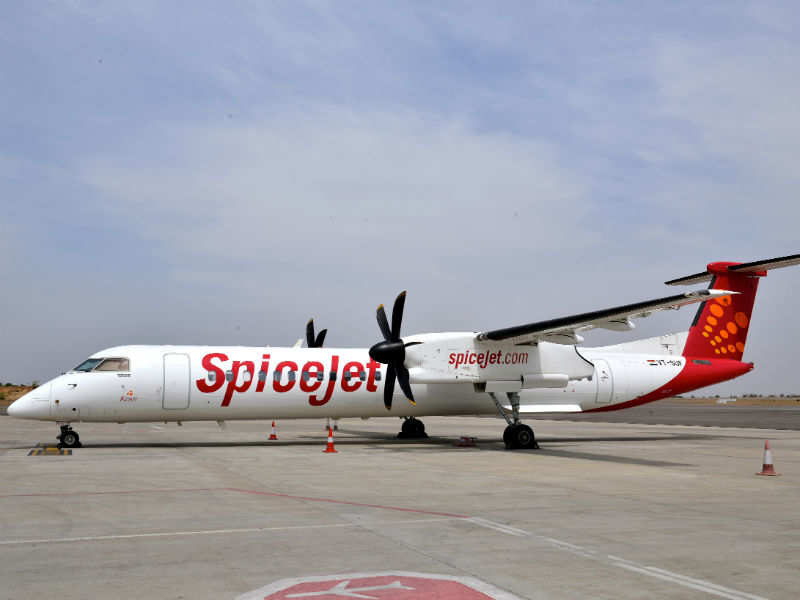Before we get into the other details, the question on most people’s minds would be -- Does it fly any different? In other words is it any less powerful?
Such a concern is natural, given that many people would draw parallels with how a CNG (Compressed Natural Gas)- powered vehicle does not quite feel or drive the same way a regular petrol or diesel powered one does.
To understand if a biofuel flight is likely to feel any different from a regular jet fuel flight, TOI spoke with a senior pilot at an Indian airline. “Aircraft engines use certain grades of fuel, jet A1 fuel being the most common. This is essentially purified kerosene. With biofuel you can just about get anything -- diesel, petrol, or even jet fuel. As long as the grade is right there should be no power loss,” said the pilot who did not wish to be named, as he’s not authorised to speak with the media.
On Sunday, SpiceJet had tested flying the biofuel-powered Bombardier Q400 (VT-SUI) for about 20 minutes in Dehradun skies, after which the company’s chief strategy officer G P Gupta had said, “The results have been very positive. According to preliminary studies, the power from biofuel was even better than regular aviation turbine fuel (ATF).”
What is interesting is that back in 2013-14, SpiceJet’s rival, IndiGo, had flirted with the idea of using biofuel to power some of its fleet, before deciding to shelve the plan, according to a source who was involved in the process. This source said, “Back then it was considered by IndiGo as they thought biofuel could be a cheaper alternative if oil prices continued to rise. But at that time they figured it was cheaper and more convenient to import jet fuel from Singapore. And thus the biofuel plan fell through the cracks.”
The biofuel used for Monday's SpiceJet flight has been developed by Dehradun-based Indian Institute of Petroleum using the jatropha crop. The flight was powered by a mix of 25 per cent of this biofuel and 75 per cent ATF. The advantage of using biofuel over ATF is that it reduces carbon emissions and enhances fuel efficiency, the airline said in a statement.
Global oil prices have been on the boil for a while, thus spiking jet fuel prices, which in turn has put immense pressure on the input cost of airlines. On the environment front, the aviation industry contributes around two per cent of the total global greenhouse gas emissions, according to global airlines' body IATA (International Air Transport Association).
Thus far, the USA and Australia have had biofuel-powered commercial flights.
from Times of India https://ift.tt/2BPUKuV

